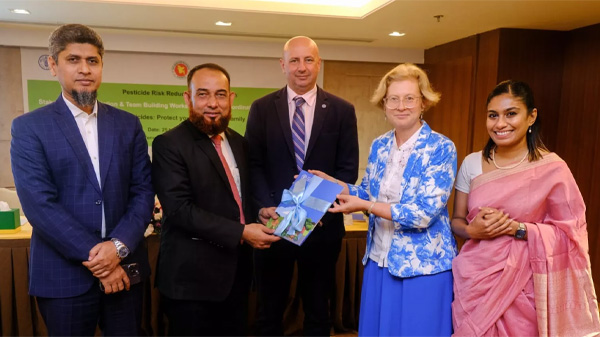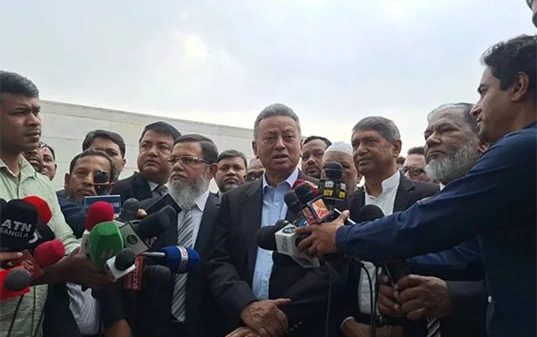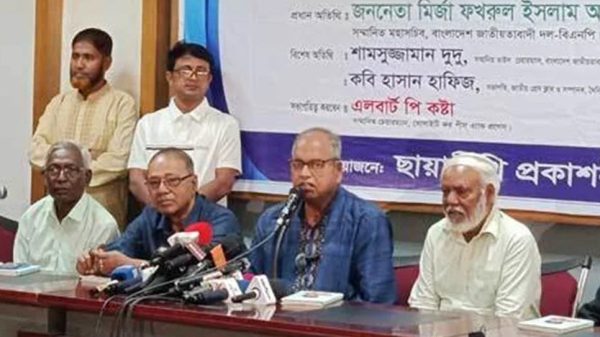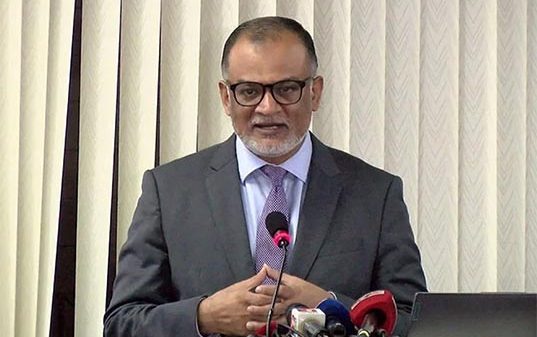FAO supports Bangladesh in strengthening pesticide regulations

- Update Time : Tuesday, 27 February, 2024, 08:10 pm
- 83 Time View

Online Desk: The Food and Agriculture Organization of the United Nations (FAO) has officially handed over its recommendations on the pesticide rules to the Department of Agricultural Extension under the Ministry of Agriculture.
Representatives from the Ministry of Environment, Forest and Climate Change participated in a workshop held on Tuesday on collaboration in relevant component of the projects.
Saso Martinov, Senior Technical Advisor, FAO Bangladesh and Dr Fahmida Khanom, Additional Secretary (Development) of the ministry participated in the event.
It was chaired by Ashraf Uddin, Director, Plant Protection Wing, Department of Agricultural Extension.
The government of Bangladesh, in collaboration with FAO, is taking crucial steps to update the Pesticide Rules under the Pesticide Act of 2018, prioritizing public health and environmental protection.
This collaborative effort aims to incorporate international best legal practices into the pesticide regulations and ensure the safe and responsible use of these chemicals in the country. The initiative is done under the Persistent Organic Pollutants (POPs) project that is funded by the Global Environment Facility (GEF).
Saso Martinov, Senior Technical Advisor, FAO stated that, “This is an important step in managing pesticides that are used in agriculture in Bangladesh. FAO team has handed over its recommendation on the pesticide rules today and will continue to support the Government of Bangladesh in its efforts to reduce the risks of pesticides following FAO’s 4 Betters including a better life and a better environment.”
Dr Fahmida Khanom, Additional Secretary (Development), MoEFCC highlighted FAO’s support in Bangladesh’s achievement of becoming free from DDT (Dichlorodiphenyltrichloroethane) and said “The government now wants to focus heavily on proper handling and recycling of toxic pesticide containers and the recommendations will work as a buffer for future activities.”
One key focus area of the Pesticide Rules is the transparent and comprehensive pesticide registration process, overseen by the Director of the Plant Protection Wing of the Department of Agricultural Extension under the Ministry of Agriculture.
A great majority of citizens of Bangladesh rely on agriculture for food security.
Improper pesticide use can lead to residues exceeding safe limits on food crops, posing health risks to consumers.
In addition, unregulated pesticide use can harm beneficial insects, pollute water sources, and contaminate soil, jeopardizing biodiversity and ecosystem health. Stringent registration enables evaluation of potential environmental impacts as well as risks to human health before allowing pesticides into the market for consumers.
FAO Recommendations aim to implement more strict measures to prevent the infiltration of highly hazardous pesticides into the market.
This includes rigorous assessments of potential risks to human health and the environment before granting registration.
The initiative prioritizes safe and responsible pesticide waste disposal. FAO Recommendations would incorporate robust regulations to ensure proper collection, transportation, and treatment of pesticide waste, minimizing the risk of environmental contamination.
Recognizing the environmental impact of pesticide packaging, the project also provides guidance on its management in line with the Environment Conservation Act of 1995 and the Solid Waste Management Rules of 2021.
This will promote environmentally responsible packaging practices and contribute to a cleaner and healthier Bangladesh.
Implementing the updated Pesticide Rules requires concrete action.
A nationwide collection program for pesticide containers supported by FAO, coupled with awareness campaigns and incentives, will ensure responsible disposal.
Training inspectors and empowering local authorities will strengthen enforcement, also engaging farmers through education programmes promoting safe handling and application, protecting themselves and the environment.
These crucial steps would pave the way for a healthier Bangladesh where responsible pesticide use safeguards public health and the environment.










